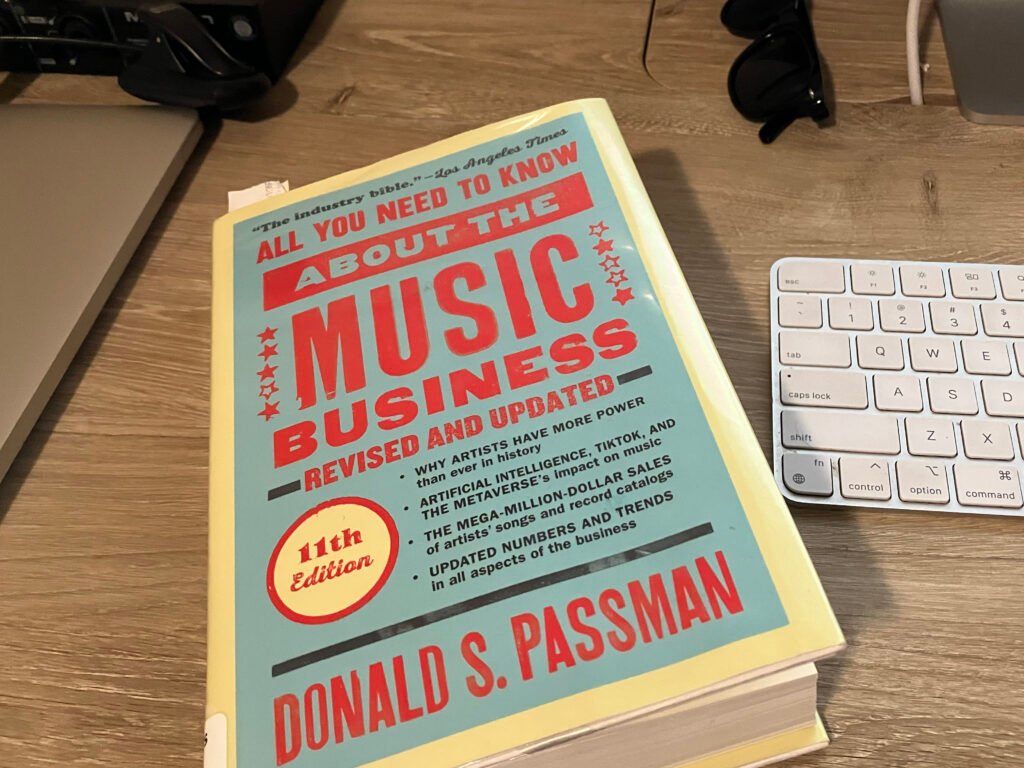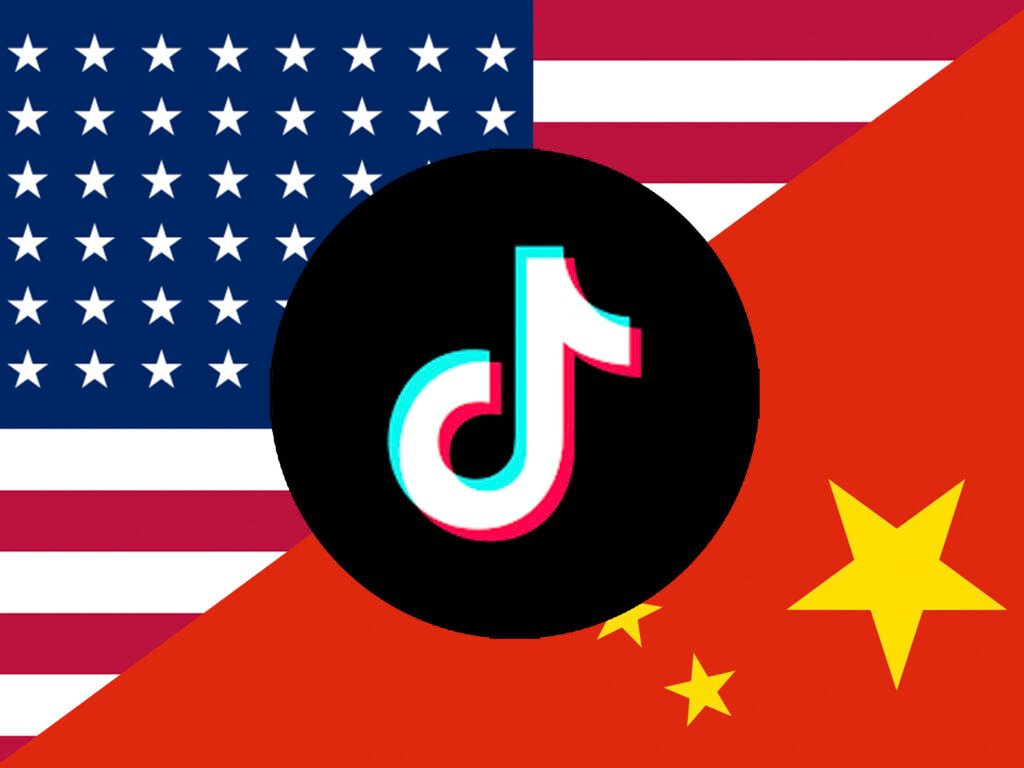The age of digital piracy took a heavy toll on the music industry in the early 2000s. Illegal file-sharing left a great crater where CD sales used to tower. In 1999 that tower stood over $14 billion dollars high, yet in the two decade aftermath, music sales plummeted to half of that amount. These were dark times for the industry, and I am sure that many artists and executives wondered if recovery would even be possible. However, in the past few years, things have begun to change, and according to Donald Passman, “…thanks to streaming, we’re now booming, having hit an all-time high of $15.9 billion in 2022, and still growing healthily”, he continues by stating that, “Streaming is clearly the savior, but in the process, it changed the music biz more radically in the last few years than any other time in history” (Passman 1).

To take this one step further, I would add that the internet and its many budding platforms has added even more fuel to the fire of growth. Culture’s shift away from the Napster model, and toward the Spotify model has been just one part of the equation. Teamed with smart phones, and the ever growing, and ever evolving social media paradigm, we find ourselves in a futuristic landscape that is now. With all of the various digital resources, and applications available to artists and labels today, it is no wonder that business is booming. It seems we just had to find a new footing upon which to rebuild the tower.
As we all know, in today’s model, people are primarily listening to music on streaming services like Spotify, and this has been a sea change from older physical models of distribution. But, how are people finding new music, and how are hits being made? Well, sit on this statistic for a moment: “13 out of the 14 number one songs in the US in 2022 were driven by viral trends on TikTok” (Stassen). Once that sinks in, ponder this strange insight, “…from 2001 to 2004, over thirty new artists made it into the [Billboard] top 10 each year. But by 2019, there were only fifteen of them, and in 2021 it was only thirteen… (Passman 20). So things are changing in rapid fashion, and I am a bit concerned by this. In sum, it seems that fewer and fewer artists are reaching the top, and almost all of those that do are finding the summit through TikTok virility. This is astonishing. One social media site, and its more than 1 billion users, are responsible for number-one placement in the charts.

In some ways, I am not surprised at the notion of a bottleneck like this in the industry, because we have seen it before. Centuries ago, gramophone inventor and manufacturer, Emile Berliner thought to sell records for his invention, and in many ways, his selected recordings were the bottleneck for potential listeners (Taintor). Flash forward to radio, vinyl, cassettes, and even cds and we find that the record labels and their distribution channels were the bottleneck for listeners. And once more, with the airing of MTV, they became the bottleneck for music consumer’s choices of tastes. So, there seems to be a repetitive nature to this process of funneling in the music industry.
On the other-hand, this new TikTok bottleneck has shifted away from the old powers-that-were, right into the hands of a specific audience, albeit an audience that is facilitated by an app that is owned by a behemoth tech company. One music fan posts that “The only way I listen to new music is from #TikTok” (Rosenblatt). This new audience, and their relationship with the music, is significantly different from those who came before. This new TikTok audience seems to be inventing a new kind of interaction between song and listener. The industry is calling this UGC, user generated content (Venkat). In essence, the TikTok audience is becoming imbedded into the art. They are including themselves in the creative process. This has become manifest in various forms, such as lip-syncing, choreography, singing and dancing challenges, and in other ways. In addition, many artists are spoon feeding this phenomenon with songs that cater to the nature of the audience and their platform. For example, Drake’s ‘Toosie Slide’ invites the TikTok audience to dance along. Ultimately, he is writing to this audience, in hopes of finding greater success in the process (Murphy).
“In TikTok’s universe, the key metric for measuring a song’s popularity is no longer how many times people have streamed it, but rather how many users have used it to create their own videos…Users are simultaneously consumers and co-creators…” (Yao). Upon first glance, it is easy for outsider’s to judge artists like Drake for so obviously catering to this new audience, however, under a more powerful lens, he may be even more brilliant than he seems. When looking at the statistics, TikTokers literally put their money where there mouth is. Not only are they hit makers, but they are also real fans of music, and the numbers support this notion. “Consumer behavior data compiled by Cirisano shows TikTok users are more likely to spend money on music, and be more invested in it. 40% of active TikTok users pay a monthly subscription for music, compared to 25% of the general population. And 17% buy artist merchandise monthly, compared to 9% of the general population” (Venkat). Ole Obermann, Head of Music at TikTok was quoted stating that “Our platform continues to unlock real-world opportunities for artists and labels, with a brilliantly engaged community who love to build connections with artists and their music, and the impact of that is undeniable” (Stassen).
Amidst the TikTok revolution, major players in the music business are biding for their piece of the pie. Major labels, such as Warner, Sony, and Universal are in negotiations with TikTok for a part of advertising revenues, the outcome is still to be determined (Stassen). Other independent labels “…have seen the success of music on TikTok…”, and they are, “…buying ads on the app to market their artists” (Rosenblatt). But, whether your a major or independent record label, or an artist like Drake, the verdict seems consistent across multiple sources. The point is made quite clear by Max Bernstein in a NBC News article: “There’s no guarantees or formulas for success on TikTok…and while there is some form of curation as to what songs are being pushed by record labels on the app, it’s the users who decide what tracks make it big”, he continues by stating that, “To the extent that a record label can manufacture some kind of viral success is everyone’s goal, but it’s not like the whole community is curated by the music business” (Rosenblatt). To further support this idea, I will draw a quote from Nina Webb, marketing head at Atlantic Records. In an NPR article in 2022, Nina stated that, “…there’s a million examples of a lot of very expensive campaigns that had no return…we can’t do it. It has to come from the fans or the artist…” (Venkat).

Before concluding, I would like to touch upon one last topic of concern related to the TikTok revolution. We cannot ignore the political nature of this phenomenon. ByteDance, parent company of TikTok is a Chinese-based company. And according to US Senator Mark Warner, “The idea that we would give the Communist Party this much of a propaganda tool, as well as the ability to scrape 170 million Americans’ personal data, it is a national security risk” (Picchi). Just days before the time of this blog writing, “President Joe Biden signed a bill…that could lead to a nationwide TikTok ban…” (Fung). Despite lawmaker’s attempts to ban TikTok, the timeline will not come into effect in time to thwart the Chinese app from potentially interfering in the upcoming presidential election (Kapur). A timeline has been set by the president and lawmakers, however, “Even without the [90 day] extension, the earliest a ban could start is January 2025…And with TikTok threatening legal action, the matter could get tied up in the courts for even longer.” (Kapur). In sum, ByteDance claims they have no intentions of selling TikTok, and they believe that “the facts and the [US] Constitution” are in their favor, and that TikTok will “prevail again” (Picchi). This message from ByteDance is in direct reference to a Montana TikTok ban that was dismissed by a federal judge this past November (Picchi).

To borrow from an article in Medium, “At the end of the day, TikTok is just one manifestation of the larger trends in digital creativity as it becomes increasingly democratized and participatory. Even if TikTok were to be banned…tomorrow, it has left its indelible mark on the music industry…” (Yao). With several years of experience in the crowdfunding space, I can agree with Yao. Although crowdfunding is a completely different kind of platform, the same kind of democratization and co-creation are present, for better or worst. People, even noncreative people want to be a part of the creation process. They want to feel as though they have somehow shaped the creative process of the artists on digital platforms. I have seen both the beautiful and the ugly side of this process. Ultimately, in the modern era, the lines between artist and patron are becoming blurrier year by year. I do not know what this means exactly, that is, I am not sure if this will lead to disastrous outcomes or if it will usher in a new era of mass artistry, for the people by the people. Only time will tell.
In conclusion, I agree with Yao that TikTok has undoubtedly made an impact on the music industry. And, if I were to make a prediction, I would say that when TikTok is banned, and my gut tells me it just might, I believe that another digital organism will fill the niche, possibly even in better ways. One thing that we can be sure of, as I have mentioned already in this blog series, is that relevance today does not mean relevance a year from now, and definitely not five or ten years from now. Trends and apps will come and go. Just as the new generations find the old passé, another will fill the void. What I hope will stay consistent are fans who are willing to fall in love with artists and their art, and that there will always be artists making art for the sake of adding interesting texture to this tapestry we call life.

I will leave you with one final quote from Donald Passman from an interview with the Music Business Journal,
The next six blog entries in the series will be as follows:
- Building A Brand As An Independent Artist
- Building An E-Commerce Website
- How To Get On Spotify & Other Streaming Sites
- Releasing Your First Single
- Lessons In Crowdfunding
_____________________________________________
Sources:



